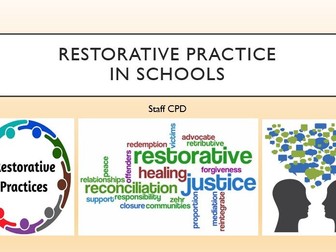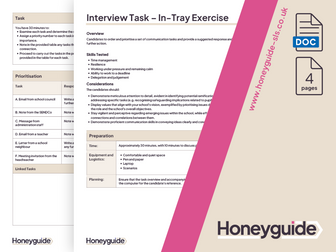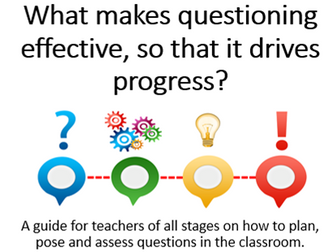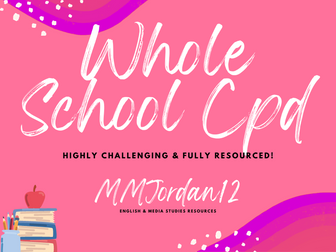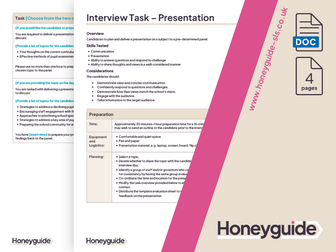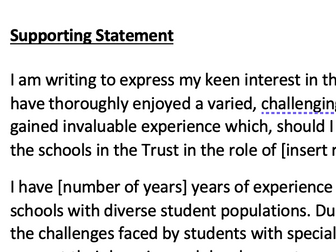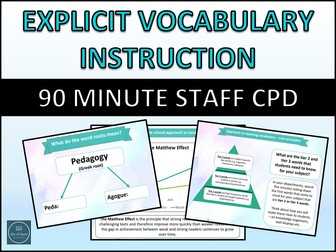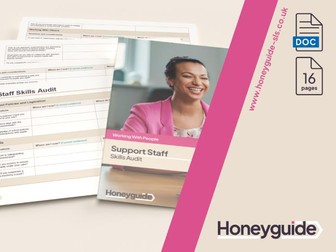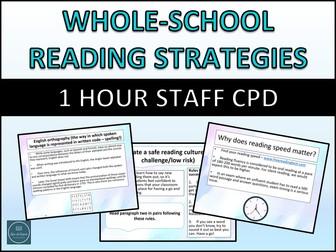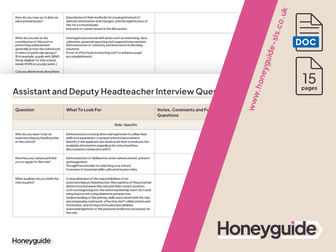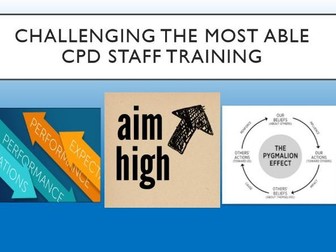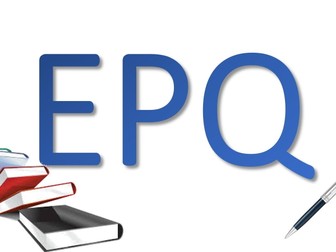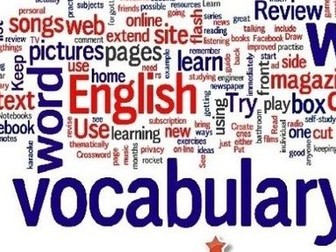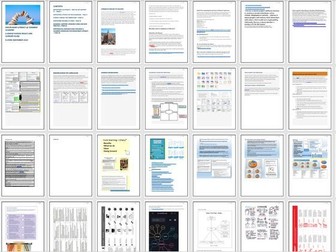
Restorative Practice in Schools - STAFF CPD TRAINING - INSET
This 29 slide presentation introduces staff to restorative practice and highlights the impact it can have on behaviour and culture. The presentations takes core themes from ‘When Adults Change Everything Changes’ by Paul Dix and ‘Getting the Buggers to Behave’ by Sue Cowley. The focus of the presentation is to ensure staff understand how restorative practice can improve relationships and empower them to deal with behaviour more effectively.
The 29 slide presentation discusses the following:
Empower Staff
Consistency
‘Picking up your own tab’
Challenging students
Restorative meetings (why have one, what to ask, how and when to have one, etc.)
Involving parents
Summary
Please also visit my TES Assembly Store where over 100 assemblies are available on a huge range of topics.
LIMITED TIME OFFER
If you purchase this resource and leave a 5-star review, you receive any £3 assembly from my store FREE!!
Leave a review and email Lee_Sullivan@hotmail.co.uk with your review confirmation and choice of assembly.
